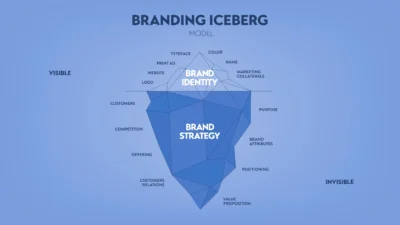Pay-per-click (PPC) ads are an efficient and cost-effective way of driving traffic and creating leads, but to maximize ROI it is vital to employ effective strategies – this article explains how you can optimize your PPC campaign campaigns for maximum impact.
I. Understanding Pay-Per-Click Advertising (PPC)
What Is Pay Per Click Advertising (PPC Advertising)?
Pay per click advertising (PPC Marketing) refers to a form of digital advertising in which advertisers pay when someone clicks their ad, typically found on search engines like Google and social media platforms such as Facebook.
Why Pay Per Click (PPC) Is Effective
PPC can be very effective because it targets individuals actively searching for products or services – meaning more potential customers may convert into buyers.
II. Goal Setting Outline Your Objectives
Before initiating a PPC campaign, it’s essential to outline your objectives. Are your aiming at increasing website visits or sales leads or both? Setting concrete goals will guide your approach and enable accurate measurement.
Set a Realistic Budget
Deliberate on an amount you are comfortable investing, and adjust it according to how well your campaign performs.
III. Selecting Keywords Effectively
Conduct Keyword Research
Utilize tools like the Google Keyword Planner to research keywords relevant to your company. Focus on those with a significant search volume but limited competition.
Use Long-Tail Keywords
Long-tail keywords tend to be much more specific and attract users who are closer to making informed purchases.
IV. Crafting Compelling Ads
Draft Clear and Concise Ad Copy
When crafting compelling advertisements, your text must be clear, succinct and compelling. Be sure to emphasize all the advantages your service or product provides and include an appealing call-to-action (CTA).
Attract Customers With Visual Content
If you are advertising on social media platforms, make sure your ads contain appealing videos or images. Visuals attract the attention of viewers while increasing engagement.
V. Optimizing Landing Pages
Optimize Landing Pages
Make sure the landing page matches up with the advertisement it supports; for instance, when someone clicks an ad that promotes running shoes they should land on a page focused on this category rather than general sports wear.
Improve Load Time
A slow loading website can cause users to leave quickly; ensure your landing page is optimized to load quickly on mobile and desktop computers.
VI. Monitoring and Adjusting Campaigns
Track Performance
Utilize tools such as Google Analytics to measure the performance of your PPC campaigns, including click-through rate (CTR), conversion rate, cost per conversions and cost per sale (CPC).
Adjust Based on Data
Don’t hesitate to make changes based on data analysis. If certain ads or keywords aren’t performing well, feel free to modify or change them as necessary.
Use A/B Testing To Examine Different Elements
A/B testing involves comparing two ads side-by-side to determine which will prove more successful. Test various headlines, images, and calls-to-action (CTAs) until you find one with maximum efficiency.
Analyze Results
Sift through the results of A/B testing to understand which elements are working better, and use these insights to optimize any future advertising campaigns.

VII. Employ Negative Keywords to Expand Searches
Negative Keywords
Negative keywords can help keep your ads out of search results that don’t pertain to your business, such as “cheap” and “discount”. For instance, if your company sells premium goods, terms like these might cause confusion among potential customers and should be avoided when advertising online.
Enhance ROI
By eliminating irrelevant traffic from your Pay Per Click (PPC) campaigns, you can increase their effectiveness and direct more money toward those likely to convert into buyers.
Conclusion
Maximizing ROI through PPC marketing takes careful planning. Setting clear objectives, selecting relevant keywords, producing eye-catching advertisements, optimizing landing pages and regularly monitoring and tweaking campaigns will bring success. Use these tips to get the maximum return from your PPC investment!
FAQs
1. What is PPC advertising?
PPC ads, also known as Pay-Per-Click (PPC), is an advertising model in which advertisers pay each time someone clicks their ad. Common examples of PPC advertising can be found across search engines as well as other social networks.
2. How can I choose the right keywords for my PPC campaign?
To select the most effective keywords, conduct keyword analysis using software like Google Keyword Planner and focus on those with high search volumes and low competition levels – you might also consider keywords with long tails to use as search phrases.
3. Why is it important to optimize landing pages for PPC campaigns?
Optimized landing pages offer quality experiences to users and can increase conversion chances – ultimately increasing return on investment and your return.
4. What is A/B testing in PPC advertising?
A/B testing refers to the process of comparing two versions of an advertisement in order to ascertain which version is more successful and help optimize elements like headlines images headlines and CTAs.
5. How do negative keywords help in PPC campaigns?
Negative keywords allow advertisers to spend their budget more wisely by targeting users most likely to convert, and increasing your return on investment (ROI).



